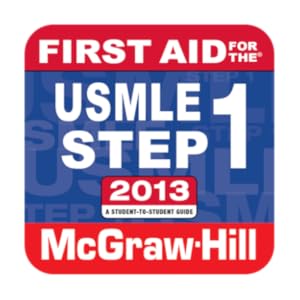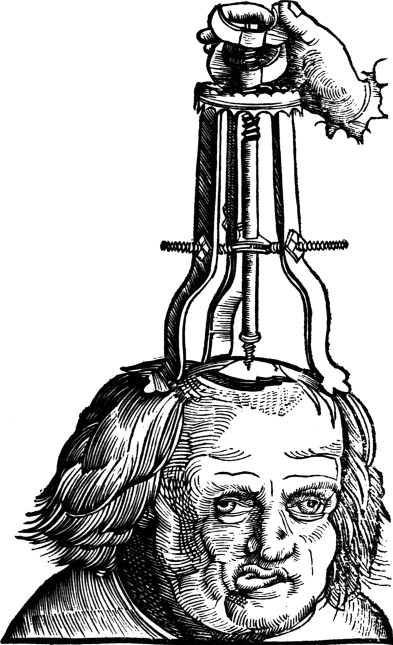I originally planned to take a follow up practice MCAT last week, but I was derailed by a Biochemistry test that was more pertinent to study for. After finishing up with the Biochem test, I was able to return to my original plan, so I continued my regular weekly study schedule and then took my practice test on Saturday.
This time I decided to go with one of the AAMC practice tests, since these tests are usually the most predictive of how you will do on an actual MCAT. This time around the test did not seem nearly as difficult as the Kaplan diagnostic I just took. When I finished I was pleased to see that I scored a 33. To be honest I was still a little upset by this score, since I thought I would score a 35 - 37.
When I reviewed the content I found out that the majority of the questions I missed were not due to lack of knowledge. Several of the questions I missed were because of some really stupid calculation errors. A few others were because I misread the question. This is good to know, because these are things that I can resolve quickly within the amount of time I have left. I believe that if I had not made those avoidable mistakes, I would have scored at least a 35.
My final analysis of that Kaplan diagnostic is that it is off-the-charts difficult. There is no reason that there should be a 10 point disparity between an AAMC practice test and the Kaplan diagnostic. The diagnostic did serve one good purpose, and that was to frighten me enough for me to reevaluate my study techniques and make a few changes.
If you are planning on taking the MCAT, I would like to share with you some advice that has helped me prepare. I have tried many different approaches, and after making quite a few mistakes I feel like I am on the right path to a high score.
Finish the Core Curriculum
My recommendation is that if you plan to take the MCAT you
should not even think about it until you have finished the following
courses
- General Chemistry 1 & 2
- Organic Chemistry 1 & 2
- Principles of Cellular and Molecular Biology
- Microbiology
- Physics 1 & 2
There
are also two other courses that AAMC says aren't necessary, which is a recommendation that I have recently come to disagree with. After having taken
Anatomy & Physiology and Biochemistry I suddenly find the Biology
section of the MCAT, which has always been my weak point, coming into
focus. You would do yourself a huge favor if you added these to your
pre-MCAT list of courses to take.
Prepare with Adequate Review
There is an essential component of preparation that everyone has to do when studying for the MCAT. To prepare myself I chose to use the Berkely Review prep course materials. There are several test prep companies such as Kaplan, Princeton Review, and Exam Krackers. When I was doing my initial research, I discovered that a lot of the guys who scored high and wrote a "how to study for MCAT" used the Berkeley Review materials as their core, while supplementing their study with material from the other prep companies.
The first, and probably most important step, is to simply slowly and methodically work your way through every subject and make sure you really understand what is being presented. I would also like to mention that these materials are a very condensed presentation of subject matter that you should have already covered in your undergraduate course load. I made the mistake of taking the MCAT the first time without having finished 4 of the main core required courses. This was an extremely stupid mistake, and led to my demise on the first test.
Identify Your Weaknesses
Once you have worked your way through all of the prep books, then the hard work begins. You now switch from reviewing, assimilating and understanding information, to working on your instant recall, test taking skills, and identifying key weaknesses in your basic knowledge. I believe that the way you approach this portion of your preparation will be the difference between a 30 and a 35+ on the MCAT.
This has probably been the most difficult part of the process for me. I like the studying, and I like understanding the material intimately because I feel like I have a more profound understanding of how the Universe works. However, I become irrationally angry when I miss questions. I don't know why, but I take it really personally when I miss something. If you are like me, then you really have to approach each study session with humility, ready to miss every question, ready to set aside your ego to plow forward, otherwise you will find many excuses for why you just never get around to it.
Another mistake I have made during this phase of preparation was slamming through questions with the idea that "the more questions I see, the better prepared I will be." That is only half-correct. It is true that the more questions you do the more variety of questions you will have encountered so you will be less surprised by such a question on test day. The true point of running through so many passages and answering thousands of questions is to reveal to you where your major weaknesses are.
The main point of doing so many questions is so you can show yourself just where you don't measure up. This year I decided that in addition to doing thousands of questions I would also review every single one to see if I answered correctly because I knew the answer, or because "I got lucky". I also decided to find out why I was missing certain questions. If it were due to a lack of knowledge then I have been forcing myself to go back and re-read the sections I am weak in. This has resulted in a remarkable increase in my knowledge and confidence.
Fill the Gaps
You cannot memorize every single tidbit of information, but hopefully by this point in your preparation you should have noticed that several tricky things seem to keep recurring, that cause you no end of trouble. The things I have struggled with have been; quick calculations, hormones and their corresponding organs, light spectrum questions, and chemical reactions. Here are a few things you can do to quickly plug some of those holes.
 |
| My Study Whiteboard |
- Note Cards - I always cringe at note card use, because I have never needed it before. I have had a change of heart, because they do serve a very specific purpose if they are used correctly. I stupidly bought some "MCAT Prep Notecards" from some company, that I have never used. Instead I have found that they are most effective when you find a formula or simple relationship that you totally bombed on, so you put that on a notecard so that you can review it in your down time. This is my opinion, but notecards only work if you fill them out yourself.
- Mnemonics - I always thought these were childish, but now I see how awesome they are. All information is encoded in language and a mnemonic is an extremely efficient way to recall information you already know, but had trouble dredging up in the past. The best mnemonics I have found so far deal with light, and hormones. ROY G. BiV (Red, Orange, Green, Blue, Violet), etc.
- Estimation Techniques - Every single prep book offers techniques on how to round to an easier number to make math quicker and give you a reasonable estimate of the answer. I have been trained as an Engineer so I was quite resistant to this idea. We are taught that a lack of exactness will lead to disastrous results. Breaking this habit was difficult but rewarding. Questions that caused me to sweat before, don't really stress me too much, and I generally finish the Physical Sciences section with plenty of time remaining. I also like to use a small dry-erase board/markers while I am studying so that I can quickly jot things down, or work through a math problem. I think it is way better than using a notebook, saves time, and simulates test day (you won't have previous notes jotted down to refer to).
Practice the Test
The only thing left now is to practice taking the test. Take as many timed practice tests as you can, so that on test day the 3 blocks of question will be just like another day of study. If you are planning on taking the MCAT, I hope that the many mistakes I have made will help you prepare in a more rational manner so you can achieve a great score the first time.
As for me, I will sit for this exam again on May 18. I will let you know how it turns out so that you can see whether or not my advice is worth taking. Until then, lets keep studying!








